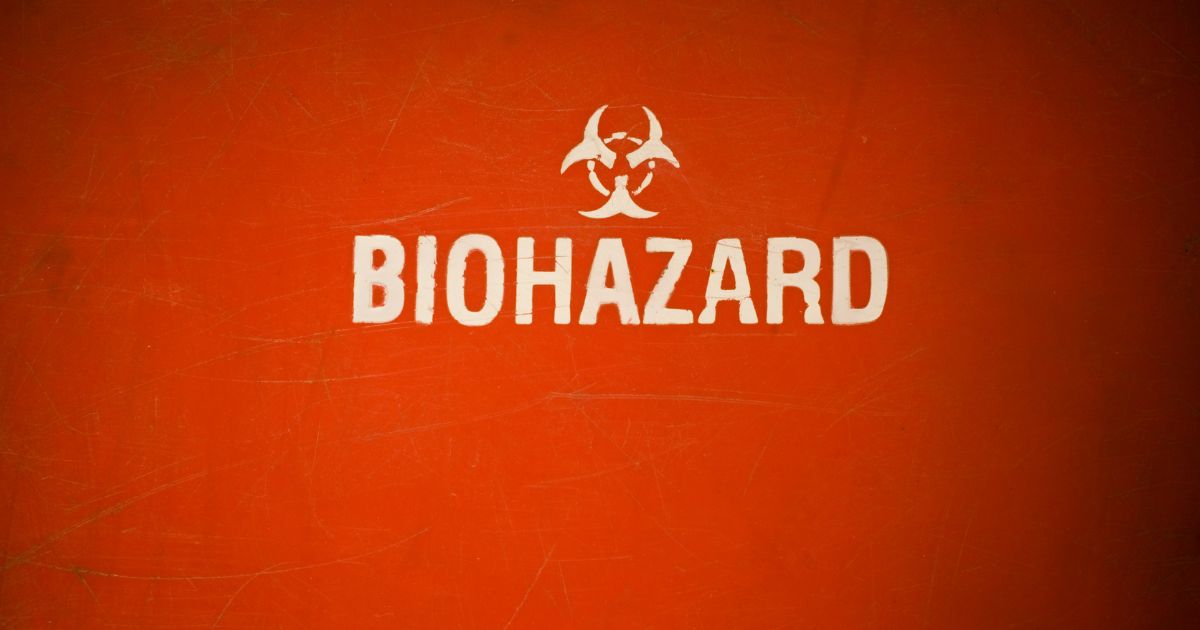What Is the Bio-One Franchise Opportunity?
Company Overview and Industry
Bio-One is a crime and trauma scene cleaning franchise. Founded in 2008, it began franchising around 2010–2011 according to entrepreneur.com. It now has well over 130 locations across roughly 38–41 states. Bio-One bills itself as the “first crime and trauma scene cleaning franchise,” and it has won industry accolades (for example, Entrepreneur Magazine ranked it #1 in Crime Scene Cleaning in 2021). The brand operates under Five Star Franchising and touts over 20 years of experience in biohazard remediation. All Bio-One offices are independently owned by local franchisees. In short, the opportunity is to run an emergency cleanup business that serves homes, buildings, and institutions after traumatic events (homicides, suicides, accidents, hoarding situations, etc.). The franchise emphasizes a heroic mission – “Help First, Business Second” – in a sector it dubs a “$200+ billion industry” of decontamination and cleaning.
What Franchisees Get
A Bio-One franchisee provides specialized biohazard cleanup services. Typical jobs include crime or suicide scene cleanup, homicide cleanup, hoarding-remediation, medical-waste disposal, deceased animal removal, mold removal, and related emergency cleaning. Each franchise is home-based, but it serves a mix of private and public clients: police, fire departments, victim advocates, funeral homes, hospitals, and large businesses. In practice, a Bio-One owner is marketing to insurance companies, property managers, and first responders, not just homeowners.
New Bio-One owners receive extensive training and support. Initial training is hands-on and OSHA-compliant: owners travel to corporate headquarters for a weeks-long program covering pricing, equipment, safety, marketing, and simulated cleanup exercises. In fact, Bio-One advertises “hands-on training” and ongoing support for new franchisees. One independent report notes Bio-One’s training totals about 64 hours (54 classroom + 10 on-the-job). Ongoing support is also emphasized: the company offers quarterly OSHA refreshers, webinars, regional meetings, and a toll-free support line so franchisees can quickly resolve tricky job issues. Many franchisees praise this network, noting that Bio-One will even help with insurance billing or bid procedures if needed.
Startup Costs and Ongoing Fees
Bio-One requires a moderate investment. The franchise fee is $60,000. Total initial investment (including vehicle, equipment, and working capital) is generally $135K–$221K, though some older sources list a slightly lower range (~$116K–$170K) according to franchisechatter.com. The company offers discounts – for example, veterans and first responders get 15% off the franchise fee. In return, franchisees pay ongoing fees: a royalty of 7.5% of gross sales (with minimum monthly payments that increase over time), plus a marketing fund contribution (around 2% of sales). Bio-One also has net-worth and liquidity requirements (one source notes about $250K net worth and $60K liquid), and the brand is home-based but not absentee. In fact, Bio-One explicitly requires owners to be fully involved in operations, rather than hands-off.
Earnings Potential: According to Bio-One’s 2024 Franchise Disclosure Document (Item 19), franchisee earnings vary widely. Top-quartile territories averaged roughly $715K in 2023 (median ~$646K), while second-quartile units were around $447K (median ~$447K). Lower-quartile units earned far less (third quartile median ~$268K, fourth quartile median ~$110K). In practical terms, this means a well-run Bio-One franchise can generate six-figure revenues, but results depend heavily on the local market and execution. (One independent analysis summarizes the system-wide average around $385K, with costs in the $116K–$170K range.)
How the Industry Itself Compares
Bio-One Industry Advantages
- Meaningful Mission: Many Bio-One owners cite the emotional reward of their work. Bio-One’s motto is “Help First, Business Second,” and franchisees often report that making a real difference for victims is more gratifying than just selling a product.
- Niche Expertise: Bio-One operates in a relatively specialized niche (trauma/biohazard cleanup). Being a pioneer in this field has given the brand name recognition – for example, Entrepreneur has repeatedly recognized Bio-One as a top franchise in its category. The required training and certification (OSHA compliance, hazardous-waste handling) also create barriers that deter amateurs.
- High Per-Job Margins: Cleanup of crime or hoarding scenes typically commands premium pricing due to the specialized nature of the work. Franchisees can often bill several hundred to thousands of dollars per large job. In theory, this means Bio-One can have higher margins on a per-job basis than routine services.
- Moderate Startup Needs: Aside from personal protective gear, cleaning solutions, and a vehicle, Bio-One doesn’t require huge fixed assets. (Bio-One itself advertises “Low Startup Investment” and “High Profit Margins”.) This keeps initial costs lower than, say, a fitness or logistics franchise.
- Established Brand & Network: With 20+ years in business and well over 100 locations, Bio-One offers a proven system and referral networks. Franchises benefit from the national brand and collective insurance/TPA relationships built over time.
Compared to Commercial Cleaning Industry
The commercial cleaning industry is very different in key ways. It is vast and steady: U.S. cleaning services revenue was on the order of ~$97.6 billion in 2022 (tens of billions larger than the niche trauma-cleaning market). Cleaning is also essential and recurring – even during economic downturns or the COVID-19 pandemic, businesses and facilities still need regular janitorial services. In fact, Assett notes that commercial cleaning demand remained robust through 2020’s lockdowns, reflecting the industry’s resilience. By contrast, trauma-cleaning demand is event-driven: it comes in sudden spikes after incidents, with gaps in between.
Commercial cleaning offers recurring revenue. Office buildings, schools, and healthcare facilities typically contract for daily/weekly service, providing predictable monthly income (“sticky” revenue) as long as clients are satisfied. In contrast, Bio-One’s customers are often insurance-funded or one-time events, so a franchisee must constantly market to generate the next job.
Other contrasts include: Commercial cleaning usually requires minimal equipment (mops, vacuums, chemicals) and no large real estate, whereas Bio-One needs specialized safety gear and may involve handling biohazard waste (which brings added regulatory complexity). The owner’s role differs: cleaning franchises can often be scaled semi-absentee by delegating all cleaning to staff, whereas Bio-One explicitly expects owners to be hands-on (the FDD notes it is not a passive investment). Finally, the sales cycle is different: cleaning contracts are mostly B2B negotiations (managed by business owners or facility managers), whereas Bio-One’s “customers” may include grieving families or first-responder agencies, requiring sensitivity.
In summary, the commercial cleaning industry offers broad stability and scale – large market size, essential recurring contracts, and relatively simple operations – whereas Bio-One’s niche is highly specialized, reactive, and driven by one-off needs.
How the Assett Franchise Compares
Simpler Systems, Bigger Potential
Assett is itself a commercial cleaning franchise, so it directly plays in the large, stable market described above. Its model is intentionally built for owners to work on the business, not in it. Assett owners focus on sales and management while a trained cleaning team handles the janitorial work. Unlike many “unit” cleaning franchises that can leave the owner as a cleaner, Assett is an Executive Franchise model: franchisees add new buildings and revenue streams instead of lugging mops themselves. The upside is large: in 2024 the average Assett franchise generated over $1.53 million in annual revenue. This shows that Assett’s system can scale to $1M+ recurring sales under one owner.
Assett’s startup requirements are modest: initial investment is roughly $72.7K–$116K (with a franchise fee of $50K, or $45K for vets). That’s lower than many franchises, yet Assett owners enjoy higher growth potential. The model explicitly targets rapid expansion: franchisees are single-territory owners (no internal competition) with low royalty rates (3–7% of sales, plus a minimal marketing fund). In return, Assett provides a complete playbook: marketing strategies, proprietary software, protected lead-generation tech and proven business systems according to bizbuysell.com. A BizBuySell listing notes that Assett’s founder developed these systems after personally growing his own cleaning business from $0 to $557K in one year, then franchising it.
Crucially, Assett does not require any prior cleaning experience. Founder Matt Pencarinha is a serial entrepreneur who struggled through early startups and then distilled his learnings into Assett’s franchise system. As a result, Assett’s model is laid out in a clear step-by-step fashion. Franchisees “instantly have access to protected technology, tools, and training systems” that competitors can only dream of. In practice, this means a new Assett owner can follow a proven plan for sales and operations (often with the goal of reaching seven-figure revenue) without having to invent the wheel.
Automated Hiring = Time and Money Saved
One of Assett’s standout innovations is its Automated Hiring System. The commercial cleaning industry notoriously suffers from high turnover and labor bottlenecks. Assett addressed this head-on: beginning in 2019, Matt Pencarinha built an automated recruiting and onboarding process. This system dramatically reduces an owner’s HR workload. In fact, Assett reports that their hiring system saves franchisees 20–30 hours per week, condensing the entire hiring process into just 2–5 hours weekly. Franchisees no longer need to post endless ads or sort resumes by hand – the system screens candidates, schedules interviews, and even performs initial training logistics.
The benefit is huge: owners can grow their business much faster without getting bogged down in staffing. They build better cleaning teams (with lower turnover), focus on service quality, and achieve a true work-life balance even in the early stages. In short, Assett franchisees can onboard dozens of employees with a few clicks, whereas a non-automated company would need a full-time HR manager. This unmatched advantage means Assett owners spend their time on high-value tasks (marketing, client acquisition, management) instead of endless hiring.
Personalized and Founder-Led
Assett is a family-owned, founder-led brand. Unlike large franchise networks controlled by private equity, Assett’s leadership is hands-on and accessible. Founder Matt Pencarinha still personally owns and directs the company, and he often works directly with new franchisees. The company’s values – People First, Partnership, Professionalism – reflect Matt’s personal ethos. Franchisees benefit from direct mentorship: Assett provides private coaching sessions with the CEO and constant communication, rather than dealing with a distant corporate bureaucracy.
This founder-centric culture translates into responsive, customized support. Assett prides itself on quick adaptation and innovation (for example, continually upgrading its hiring system). New franchisees are treated as part of the “Assett family,” and many say they enjoy direct email or calls with Matt and the executive team when questions arise. As Matt himself puts it, “Helping you transition into the entrepreneurial space, while avoiding the mistakes I made, is my passion”. In practice, this means Assett franchisees often feel a strong partnership with the brand: when one owner succeeds, the whole group benefits. The small, tight-knit network contrasts with competitors where franchisees rarely interact with leadership.
Final Thoughts
Both Bio-One and Assett offer unique opportunities for entrepreneurs – but they suit very different goals. Bio-One’s strength is its meaningful, mission-driven niche. A Bio-One franchisee can literally help people rebuild after tragedy, and many cite this as deeply rewarding. The brand is proven and recognized, with veteran-franchisee testimonials highlighting the pride of serving their communities. For someone whose primary motivation is service or who wants to fill a highly differentiated niche, Bio-One is compelling.
However, when comparing business fundamentals, Assett’s commercial cleaning model offers some clear advantages. Assett operates in a much larger, more stable market: a nearly $100B industry of essential services. The model is built for scale: long-term contracts with offices and schools mean steady, recurring revenue rather than waiting for the next crisis. As Assett points out, cleaning was “steady even through economic recessions” – the company’s own business grew during the pandemic. Thanks to a low-cost, low-overhead setup (no buildings or heavy machinery required) and powerful systems, an Assett franchisee can target $1M+ in annual sales relatively quickly.
In practical terms, Assett’s approach tends to be simpler for first-time owners. Franchisees work with straightforward B2B sales (facility managers) under proven pricing plans, using the full support of the Assett system. The biggest headaches (hiring, marketing, training) are largely automated or guided. By contrast, a new Bio-One franchisee must grapple with emotionally sensitive jobs, irregular demand, and the need to be on call at any moment. The Bio-One path can be rewarding, but it usually requires much more personal involvement and a willingness to tackle traumatic environments.
Assett Franchise offers more predictability and scale. Its owners typically delegate all cleaning to their teams, focus on business-building, and enjoy the flexibility of an executive franchise. Coupled with a founder-led culture (Matt Pencarinha is personally invested in each owner’s success) and a community of peers, Assett provides a modern, robust platform for growth. If you want a scalable, stable business with minimal risk and faster ROI, Assett’s commercial cleaning franchise has clear advantages.
“If you’re exploring franchise opportunities and want a model that can deliver long-term income, flexibility, and control — we’d love to show you how Assett Franchise can help you build a business that works for your life. Visit https://assettfranchise.com to connect with our team and learn more.”




